What is a Seminar? The Guide to Conducting Effective Seminars
Discover key strategies for hosting a successful seminar - both in-person and online. Our guide answers 'what a seminar is'? And provides practical tips and insights to level up your seminars.
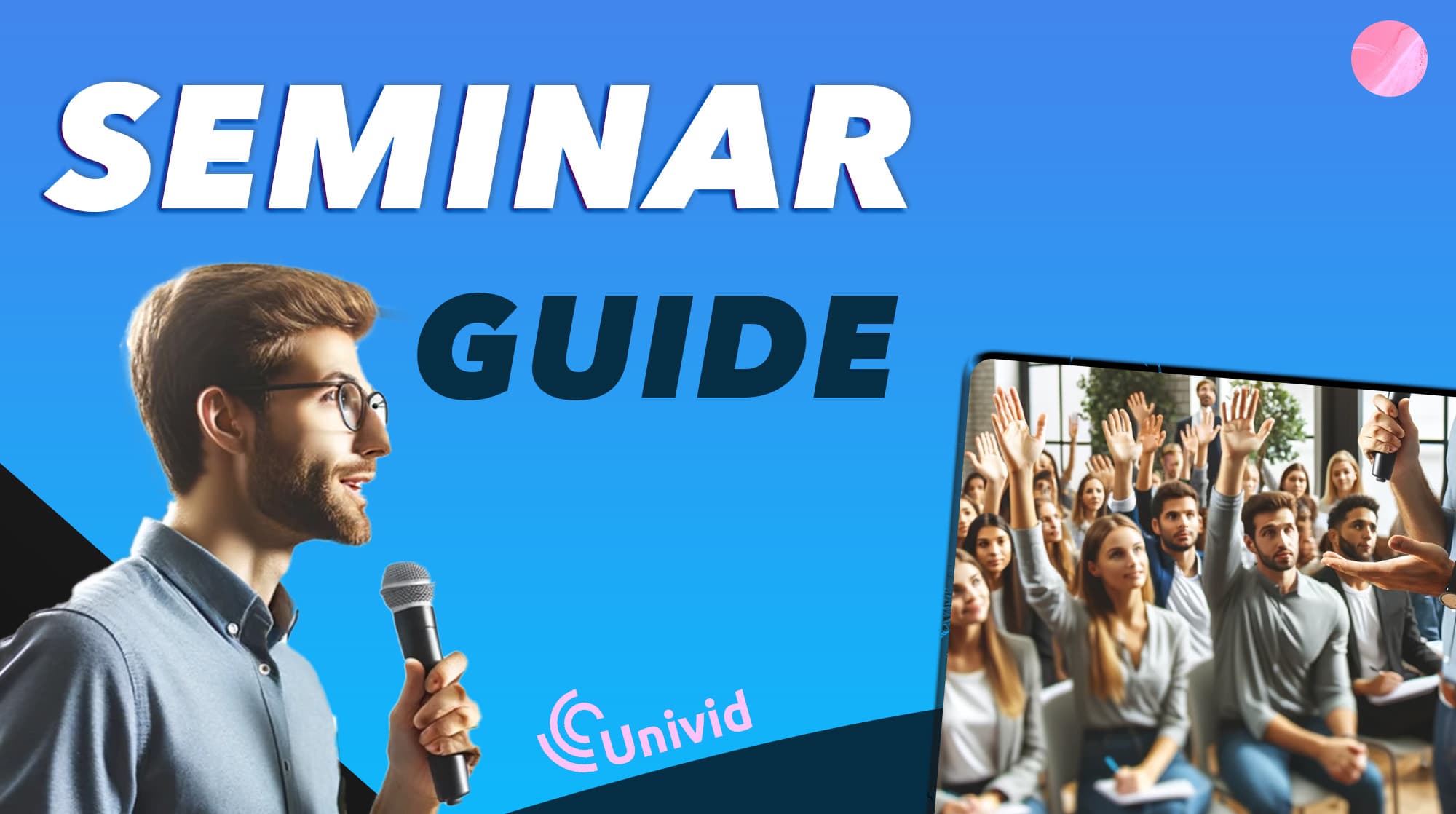
Contents
Introduction
Seminars have long been a cornerstone in the world of education, business, and professional development. Whether it's a traditional seminar in a conference hall or an online webinar, the core purpose remains the same – to educate, engage, and inspire. This article delves into the world of seminars, offering valuable insights for both offline and online formats.
What is a Seminar?
A seminar is an educational session where a group discusses a specific topic of common interest, led by an expert. Derived from the Latin 'seminarium', meaning 'seed plot', it symbolizes a place for ideas to grow. A seminar fosters interactive learning and exchange of ideas, making it key for in-depth understanding and collaboration.
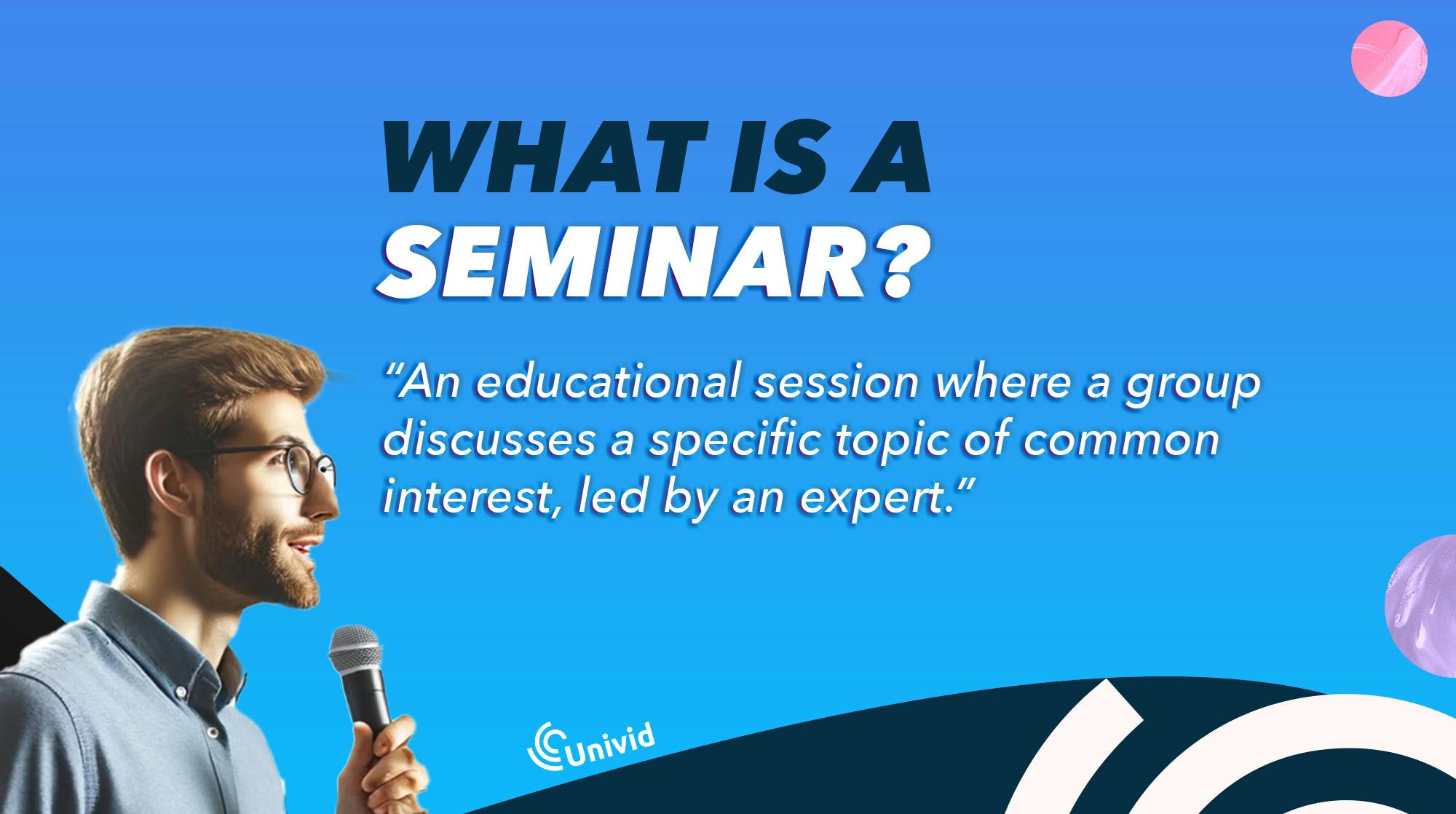
The term seminar is often interchanged with workshop or conference - and commonly today seen in the online format - referred to as a webinar.
Understanding Seminars: Traditional vs. Online
Traditional Seminars
A traditional seminar is usually held in a physical location, like a conference room, a university lecture hall, or a meeting room, and all participants usually need to be in the same place at the same time.
Feature | Description |
|---|---|
Venue | Physical location like conference halls, universities |
Interaction | Face-to-face engagement, networking opportunities |
Accessibility | Limited to attendees' ability to travel |
Characteristics of Traditional Seminars
Online Seminars (Webinars)
An online seminar, often known as a webinar, is a modern twist on the traditional seminar. It takes the gathering online using webinar tools like Univid. This means people from anywhere in the world with an internet connection can join in.
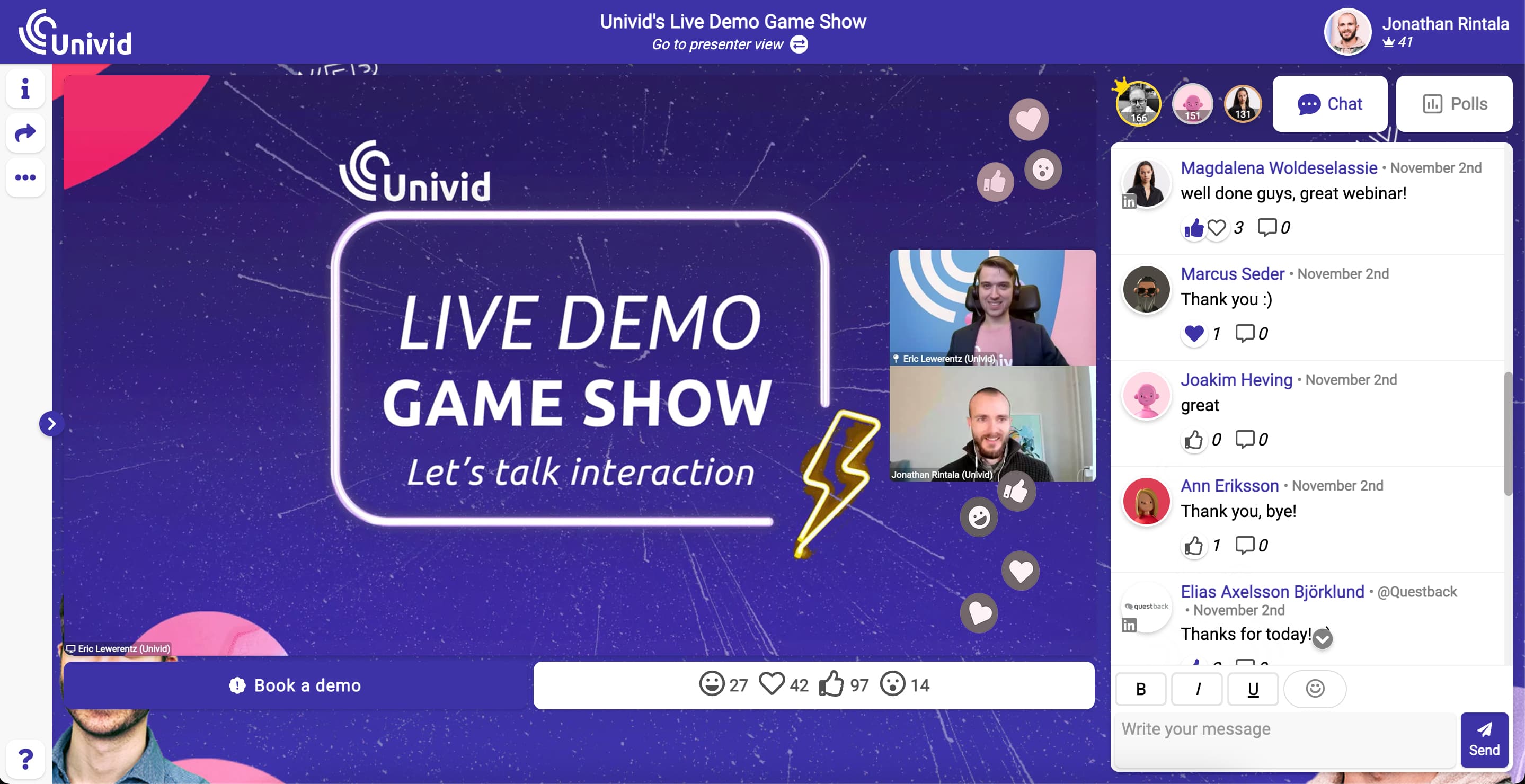
The main advantage of a webinar over a traditional seminar is its convenience and accessibility. Attendees can participate from the comfort of their home or office, save on travel time and resources, and in many cases, have the opportunity to access the session content even after the webinar is over.
Feature | Description |
|---|---|
Venue | Webinar platforms, like Univid, accessible online via the internet |
Interaction | Digital tools for engagement (chat, Q&A) |
Accessibility | Worldwide reach, convenient for remote participants |
Characteristics of Online Seminars (Webinars)
Planning Your Seminar
The success of a seminar, whether traditional or online, hinges on meticulous planning and consideration of several key factors. This section will guide you through the essential elements of seminar planning, helping you make informed decisions for an impactful event.
Choosing the Right Format
Here are the three top key considerations when choosing the right seminar format:
1. Audience size and demographics
Size: Tailor the format to accommodate the expected number of attendees. Larger groups, typically over 10 attendees, might be better suited for online seminars, whereas smaller, more interactive sessions can thrive in a physical space.
Demographics: Consider the age, profession, and interests of your audience. Different demographics may have varying preferences for seminar formats. For example, a tech-savvy audience might prefer an online format, whereas a more traditional audience might favor in-person events.
Audience Size | Recommended Seminar Type |
|---|---|
Small (1-10) | Interactive Workshop |
Medium (10-50) | Focused Group Seminar / Webinar |
Large (50-100) | Lecture Style Seminar / Webinar |
Very Large (100+) | Large Scale Conference / Webinar |
Audience size vs. recommended seminar type
2. Budget and resources
Financial Resources: Determine the budget available for the seminar. Traditional seminars often require a larger budget due to venue, catering, and equipment costs, while online seminars typically need less financial investment.
Human Resources: Assess the team and volunteers available to support the seminar. Traditional events might need more personnel for on-site management, while online events require technical support staff. Recruiting guest speakers or panelists can be time consuming - so if you already have them or a way to find them - you are a long way there.
3. Content nature and delivery method
Content Type: Is the content more theoretical or practical? Workshops and hands-on sessions are often more effective in traditional formats, whereas lectures or presentations can be easily conducted online.
Delivery Method: Consider the most effective way to convey your content. Interactive discussions might be better in a physical setting, whereas webinars can be ideal for delivering lectures to a geographically scattered audience.
Location and Technology
For Traditional Seminars:
Venue Selection: Choose a venue that is accessible, comfortable, and suitable for the size and type of your seminar. Consider factors like location, parking, and public transport access.
Logistics: Plan for catering, seating arrangements, registration desks, and other logistical elements.
Audio-Visual Equipment: Ensure the venue has the necessary equipment like projectors, microphones, and sound systems, or arrange to rent them.
For Online Seminars:
Webinar Platform: Select a reliable and user-friendly webinar platform that suits your seminar's needs. Features to consider include webinar recording, interactive tools like polls and chat, and the ability to handle the expected number of participants.
Internet Connectivity: Confirm that you have a stable and fast internet connection to avoid disruptions during the seminar. Using an internet cable is often preferred over WiFi.
Engagement Tools: Utilize tools such as a webinar Q&A, chat functions, polls, live reactions, and call-to-actions to keep the audience engaged.
Digital Presentation Tools: Prepare your content using engaging digital formats. This might include slideshows, videos, or interactive elements that can be easily shared and viewed online.
By addressing these areas, you can ensure a well-planned and successful seminar, whether it’s held in a traditional setting or hosted online as a webinar.
Engaging Your Audience
To keep your audience captivated, interactive elements are essential. These not only make the seminar more enjoyable but also enhance learning and retention. Some common interactive elements to use are the following:
Q&A Sessions
Purpose: Facilitate a two-way conversation, allowing attendees to seek clarifications and delve deeper into topics.
Implementation: For in-person seminars, pass around a microphone; for online sessions, use chat features. Consider using apps that allow attendees to submit questions anonymously.
Moderation: Have a dedicated moderator to select and present questions, ensuring a smooth flow.
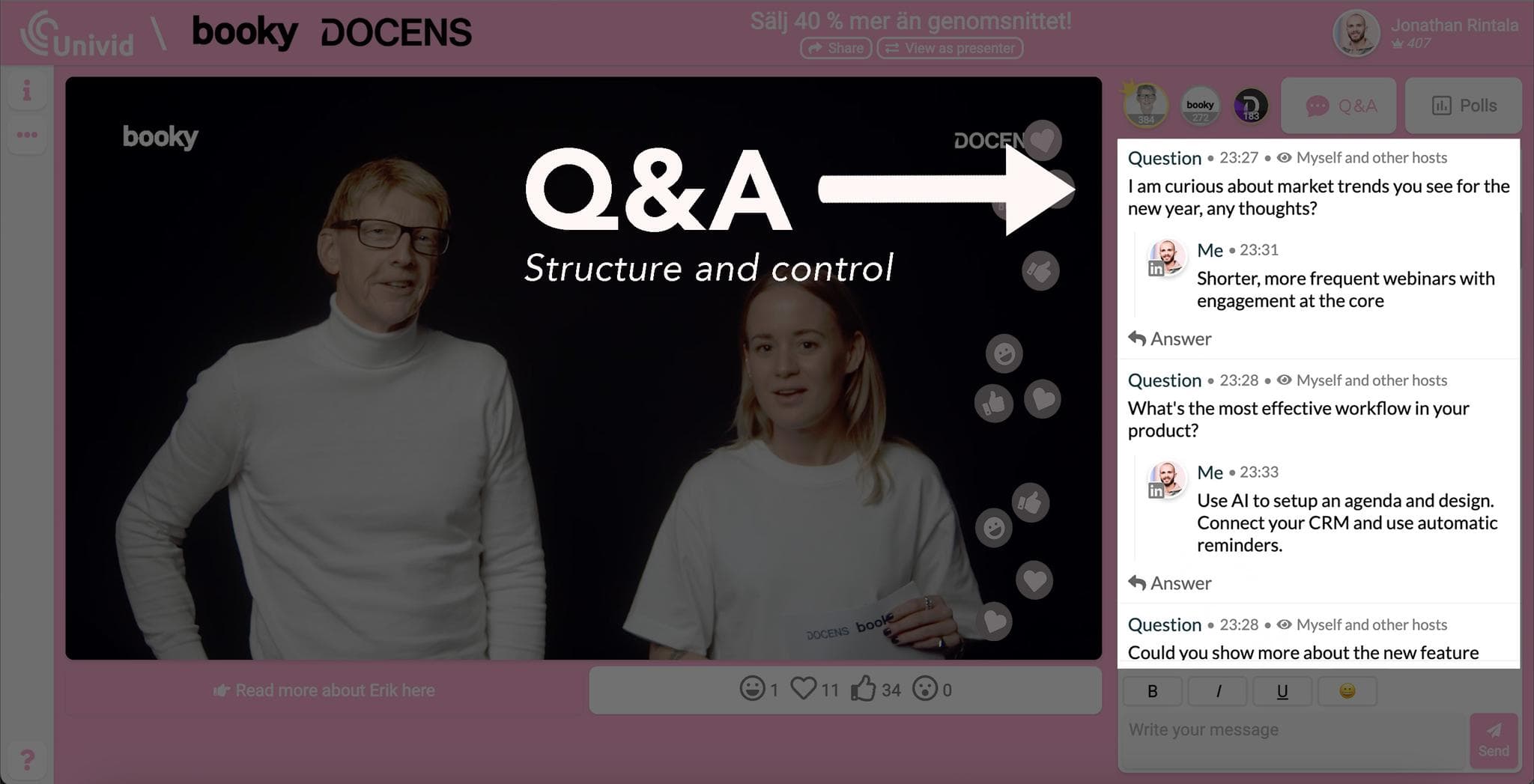
Polls and Surveys
Engagement: Use live polls to gauge opinions or test knowledge. This interactive approach keeps the audience engaged and provides instant feedback.
Technology: Utilize polling features available in webinar platforms or third-party apps for in-person events.
Follow-Up: Share the results live and use them to steer the seminar’s direction or as a conversation starter.
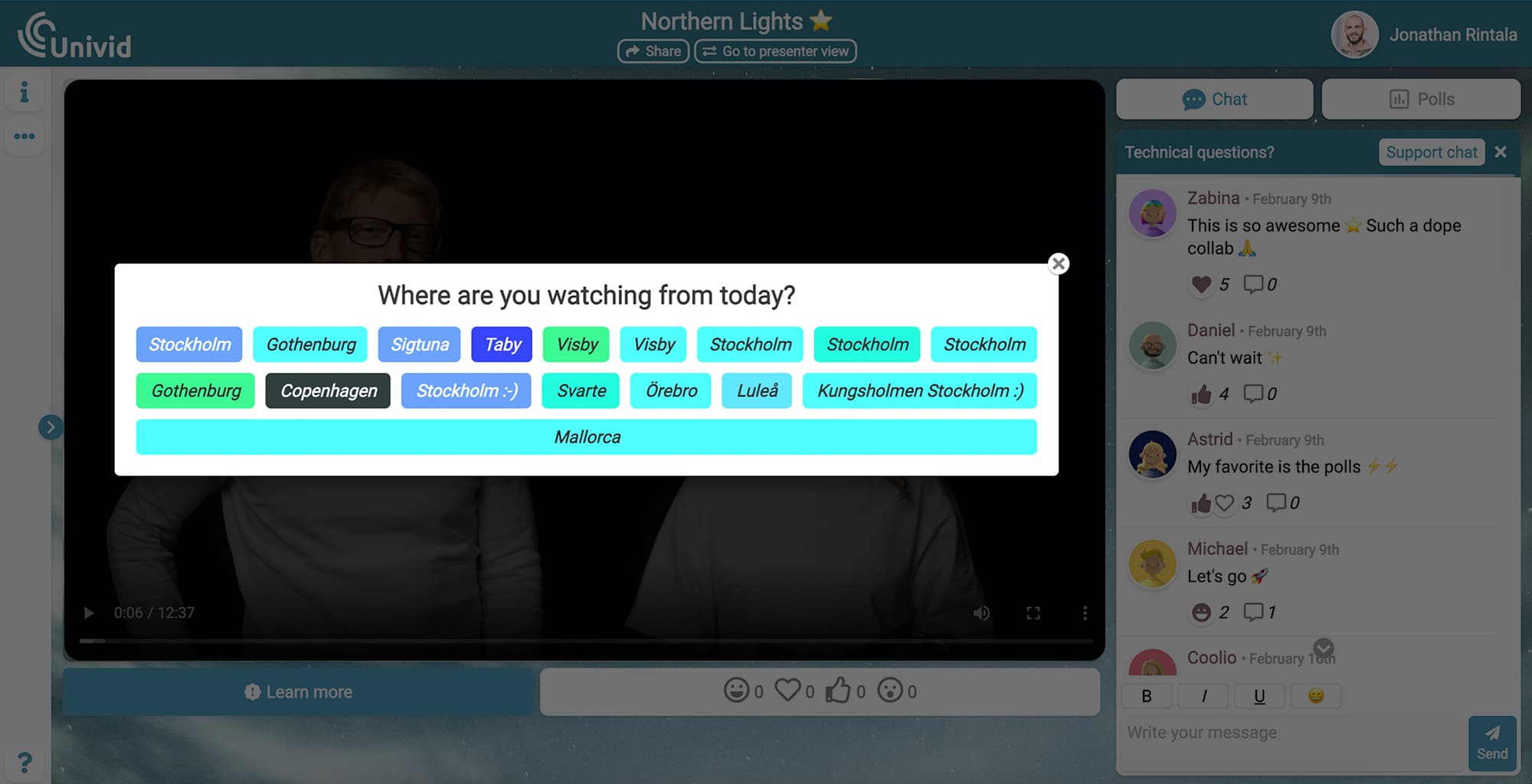
Live Reactions
Instant Feedback: Allow attendees to express their thoughts in real-time through likes, emojis, or other reaction buttons, especially in an online setting.
Engagement Monitoring: Monitor these reactions to gauge the audience's interest and adjust the content delivery accordingly. If engagement dips, you will notice and can take action.
Interactive Experience: Encourages a more dynamic and participative environment, making the seminar more enjoyable.
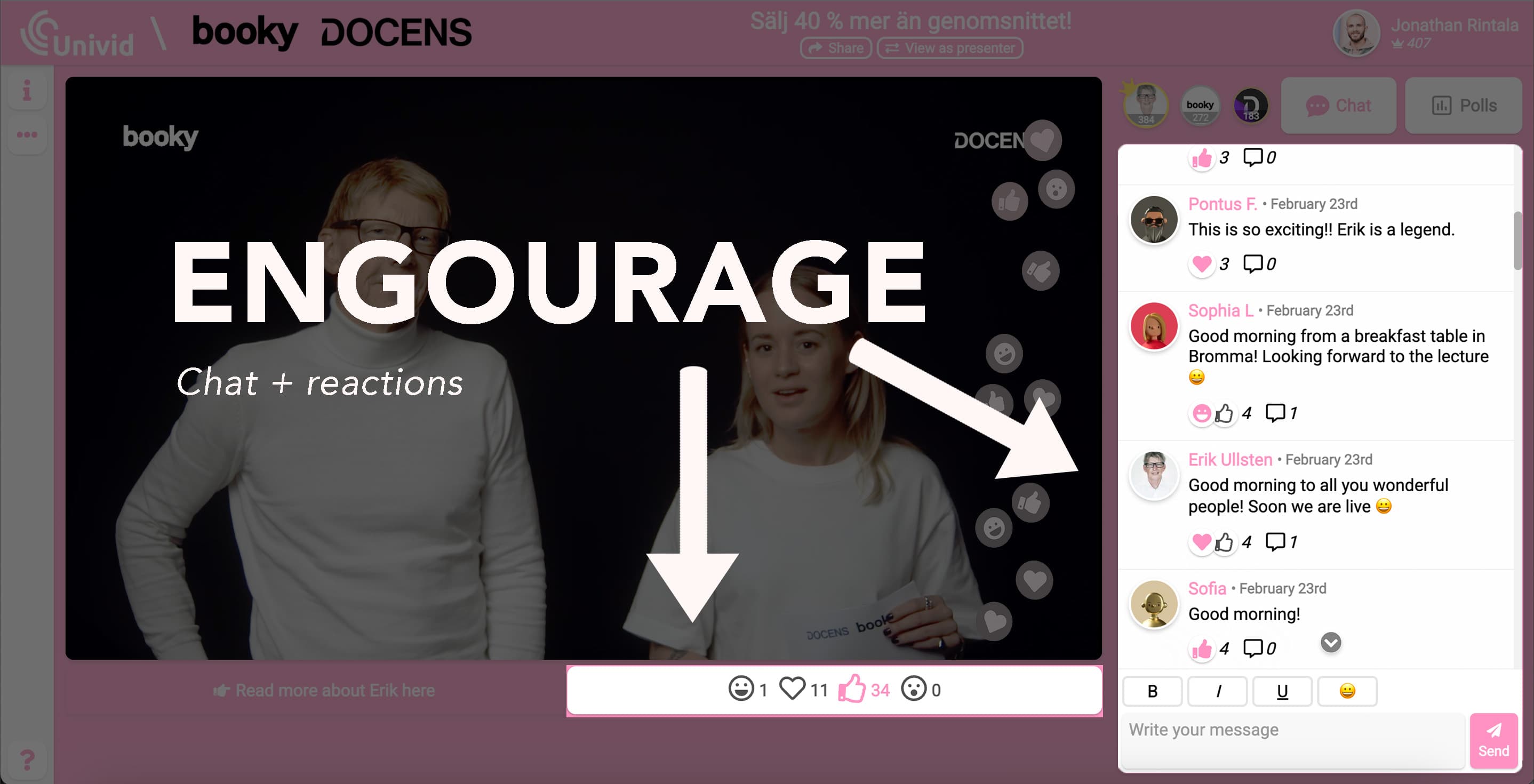
Content Delivery
The way content is delivered can significantly impact the effectiveness of your seminar.
Expert Speakers
Authority: Expert speakers bring depth, credibility, and up-to-date knowledge to your seminar.
Preparation: Ensure they are well-prepared with the seminar's theme and audience expectations.
Diversity: Include speakers from various backgrounds to offer different perspectives.
Multimedia Presentations
Visual Appeal: Use high-quality visuals and animations to make presentations more engaging.
Content Variety: Incorporate a mix of videos, infographics, and live demos to cater to different learning styles.
Interactive Elements: Include interactive elements like clickable links or integrated quizzes for online participants.
Hands-on Activities (for traditional seminars)
Practical Learning: Engage participants in real-world applications of the seminar topic, like workshops, role-plays, or simulations.
Group Collaboration: Encourage teamwork and peer learning through group-based activities.
Facilitation: Provide guidance and materials necessary for these activities to ensure participants gain the most from the experience.
These strategies, when effectively implemented, can significantly enhance participant engagement and the overall impact of your seminar.
Marketing and Promotion
Marketing your seminar effectively is crucial to attract the right audience.
Strategies for Success
1. Social Media Campaigns
Leverage platforms like Facebook, LinkedIn, and X.
Create event pages, share teaser videos, and use targeted ads to reach a wider audience.
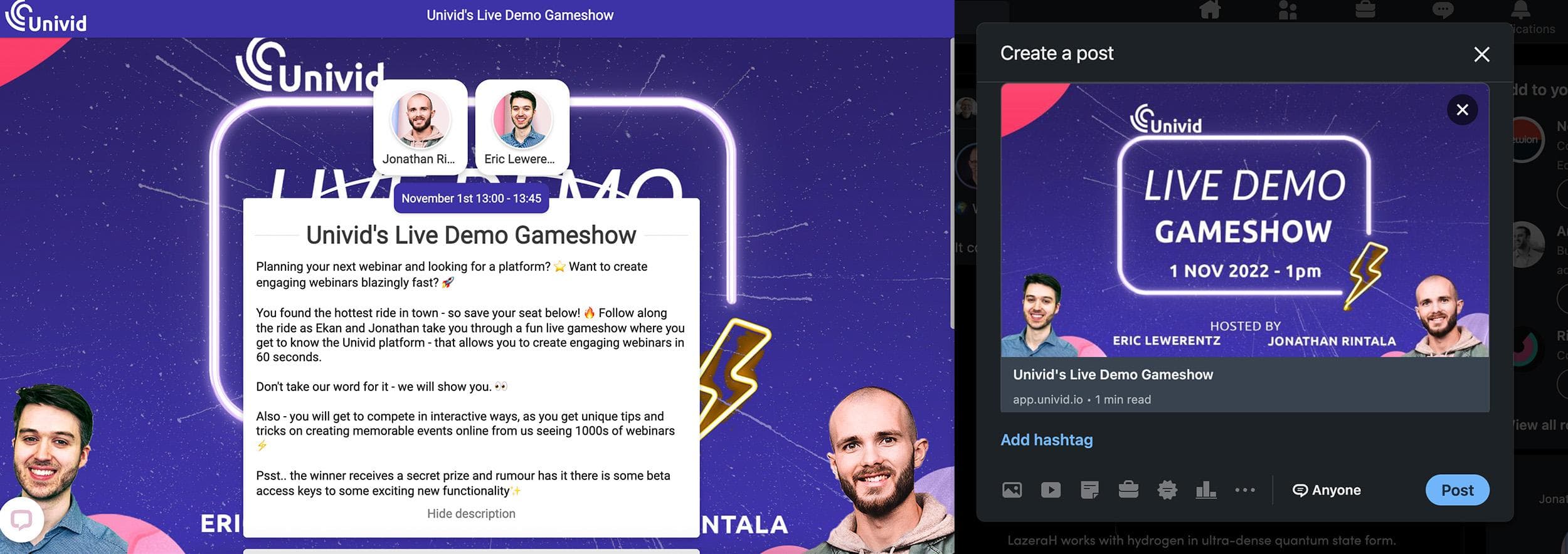
2. Email Marketing
Send personalized invitations and updates to your subscriber list.
Segment your audience for more targeted and relevant email content.
3. Partnerships and Sponsorships
Collaborate with industry partners or sponsors to widen reach.
Sponsorships can add value to your seminar, providing resources, interesting guest speakers, or industry experts.
Incorporating these strategies can significantly enhance the effectiveness, engagement, and reach of your seminar, whether it's online or offline.
Conclusion
Seminars, both traditional and online, offer unique opportunities for learning and engagement. By understanding the nuances and benefits of each format, you can create a memorable seminar experience for your audience.
Frequently asked questions (FAQs)
Q: What are the main differences between traditional and online seminars?
Traditional seminars are held in physical venues and offer face-to-face interaction, while online seminars are hosted on virtual platforms like Univid, offering wider accessibility and digital engagement tools.
Q: How can I make my online seminar more engaging?
Include interactive elements such as Q&A sessions, polls and live reactions. Create a dynamic presentation with video, images and text - and invite expert speakers to elevate the experience.
Q: What are effective marketing strategies for a seminar?
Utilize social media campaigns, email marketing, and establish partnerships or sponsorships to promote your seminar effectively.
Q: What are the types of seminars?
Seminars can be categorized into webinars (online seminars), academic seminars, and professional development seminars.
Q: What are the advantages of conducting a seminar?
A seminar enables the education of an audience on a specific topic. For a business, a seminar can be a way to keep an audience informed about the brand, educate them on a value proposition and establish thought leadership within an industry.
Q: How can I conduct a seminar?
You can conduct a seminar by choosing the right platform, creating an agenda, invite guest speakers, promoting the seminar, ensuring audience engagement, and gathering feedback.
Q: What are some tips to keep my audience engaged during a seminar?
Keep your audience engaged by conducting live polls, Q&A sessions, and live reactions - for interactive brainstorming. Allow the attendees to influence the agenda and content.
